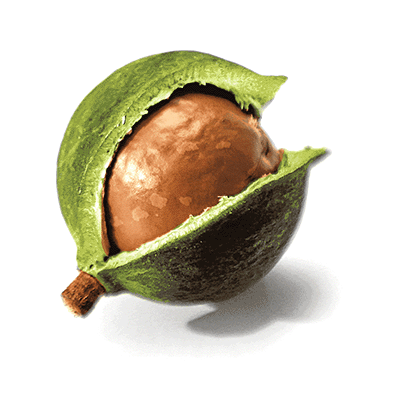
What does Macadamia nuts look like
Hidden treasure: At first glance, the nuts almost look like limes. This is because they are covered by a green protective skin - the outer shell. Underneath, the inner brown shell is revealed. Only when this has been cracked does the actual kernel reveal itself: the macadamia nut.
At LIMBUA, only the high-quality macadamia species Integrifolia is cultivated. These grow on an organic macadamia tree.
The smallholders remove the green shells on their farms and use them as animal feed, fertilizer or compost. The inner, brown shell, however, is about three millimeters thick and extremely hard. To open it gently, we have developed our own handcracking technologies.
This allows us to crack the nuts directly in our on-site factories, one by one and without damaging the precious kernel. The remaining outer shells contribute to soil fertility as mulch or replace valuable wood in the oven - which we take advantage of in the nut drying process.

Image 1: Organic Macadamia nuts in a green protective skin. The brown, thick shell is hidden underneath.

Image 2: The macadamia nut after cracking the brown shell in LIMBUA production.
Origin Macadamia nuts
The macadamia nut originally comes from Australia, particularly from the areas around Queensland and New South Wales. In the 1850s, the plant was scientifically described for the first time and named after the Scottish chemist John Macadam. Since then, the macadamia has spread worldwide, with countries such as South Africa, the United States and Brazil also having large growing areas today.
Kenya also offers ideal growing conditions for macadamia nuts, characterized by fertile soils, mild climate and sufficient rainfall. The LIMBUA growing areas are located in the central highlands at the foot of Mount Kenya and provide perfect conditions for the growth of macadamia trees.
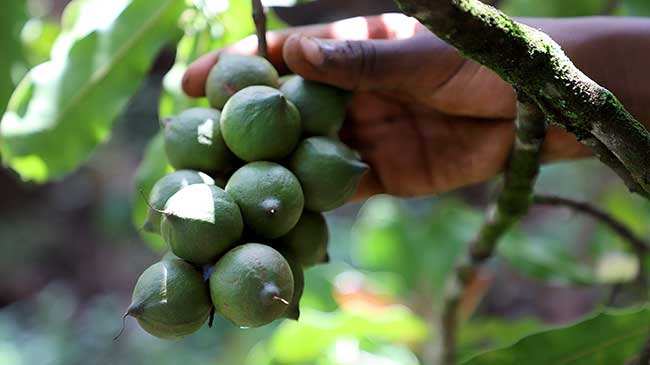
The macadamia tree
Macadamia nuts grow on an amazing macadamia tree: these trees stretch up to 15 to 20 meters in height and form long, thick leaves. In this way, they become both a source of shade and protection against evaporation. The roots, in turn, bind water and prevent erosion - a benefit for the entire ecosystem.
At LIMBUA, the macadamia trees grow exclusively in organic mixed cultivation on the farms of the small farmers. Among other plants, avocado and mango trees also grow between the macadamia trees. This is particularly good for soil fertility.
However, it takes about 5 years before the first harvest is due. Once the nuts have ripened, they fall to the ground. Some growers then collect them with special machines. At LIMBUA, however, we prefer the kind of care that only manual labor can provide.
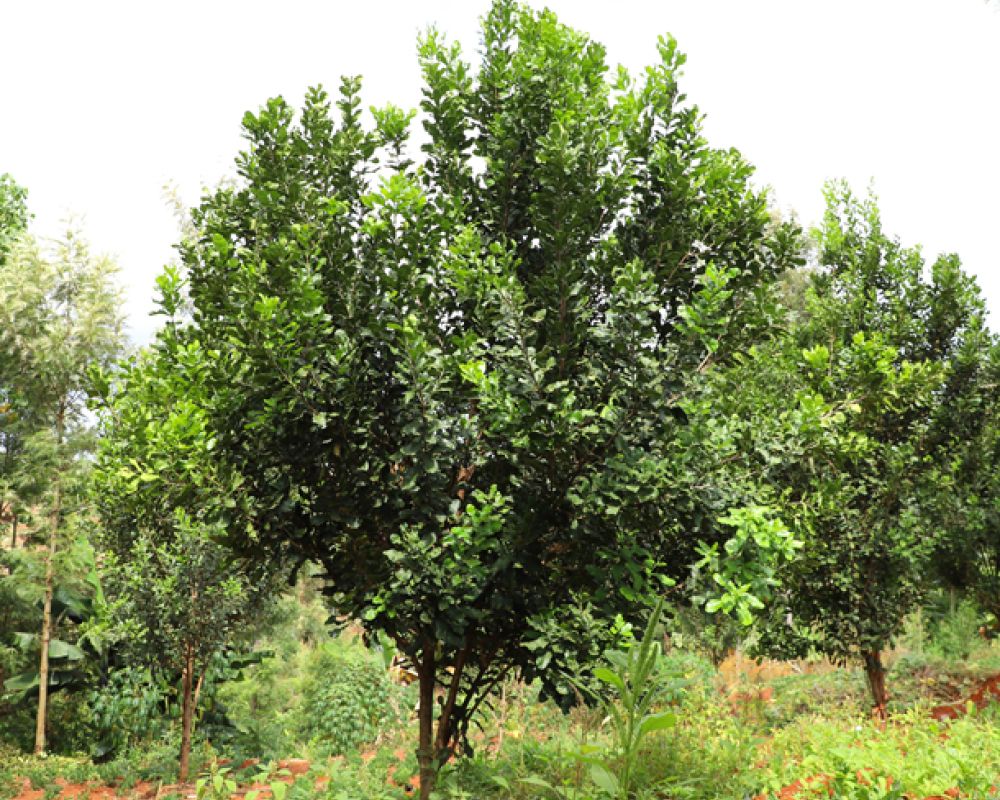
From seedling to macadamia tree:
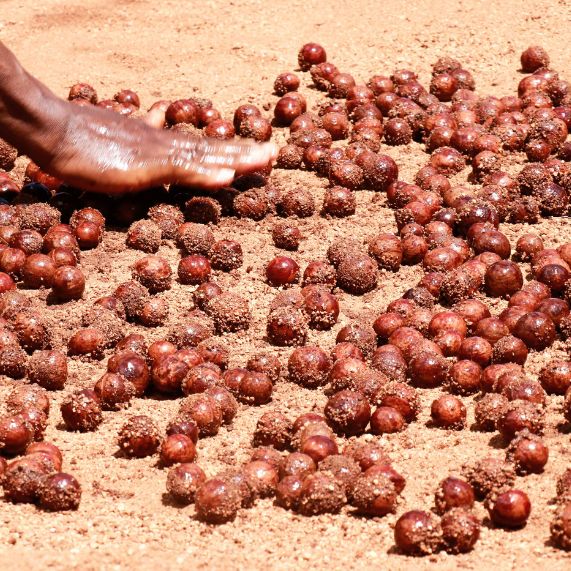
1 Macadamia soaking
Macadamia nuts in shell (seeds) are soaked in water to soften the shell and break dormancy. Immediately after soaking, they are exposed to the sun to promote cracking. The macadamia are then placed on the bed and covered with sand.
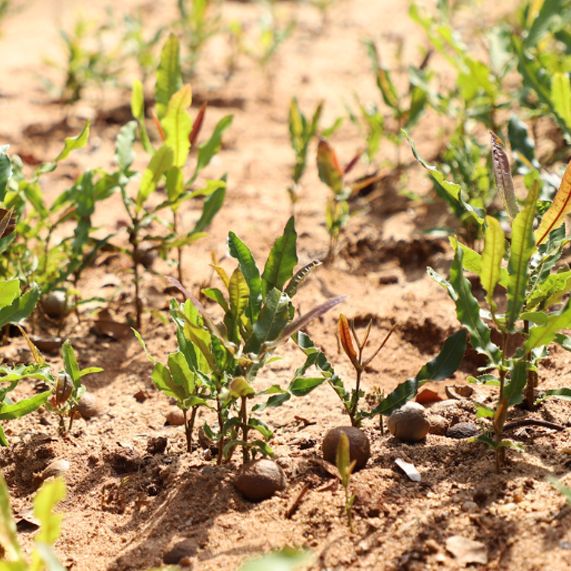
2 Germination
After 21 days the first seeds germinate. They do not germinate uniformly, because the dormancy of each seed is different, so it takes up to 75 days to complete the germination process. Within this period, the already germinated seedlings are transplanted once a week.
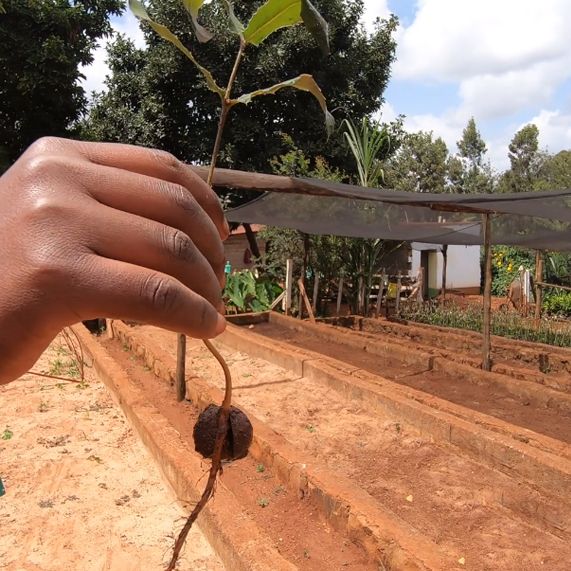
3 Growth phase
After germination, the macadamia tree seedlings remain in the bed until they are about 10-15 cm tall. Around this time, the tender seedlings have a well-developed root and leaf system. The seedling is carefully pulled out of the sand to take the core, which continues to provide it with nutrients.
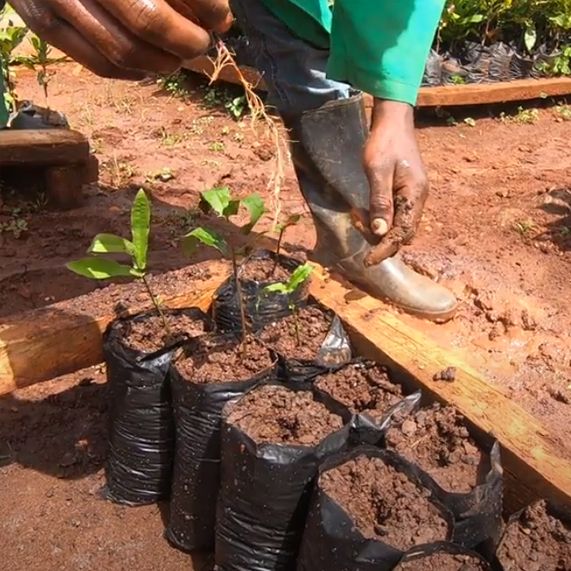
4 Planting
The seedlings are planted by drilling a small hole in the center of each tube and carefully inserting the tender seedling together with its core and immediately watered to cool the soil. They remain in the nursery for about 5-7 months before grafting.
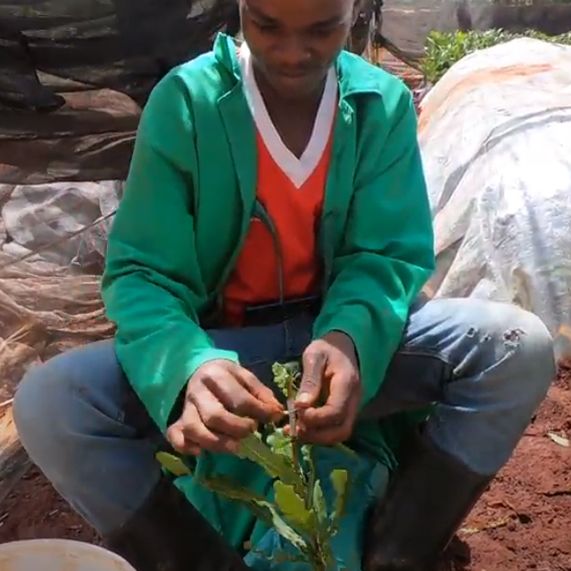
5 Grafting
After transplanting, the rootstock needs 5-7 months until it is ready for grafting. When grafting the Macdamia tree, 2 plants are joined together until they are fused - in principle, it is a transplantation of one part of the plant to another. In this way we have developed particularly high-yielding macadamia trees.
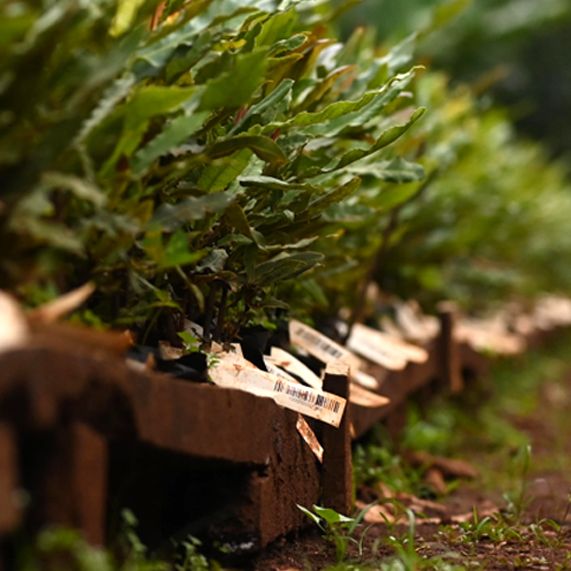
6 Traceability
At our nursery, we have implemented a traceability system that helps us track each seedling closely from germination to delivery to our smallholder farmers. This helps us determine various factors that affect the seedlings at each stage of growth.
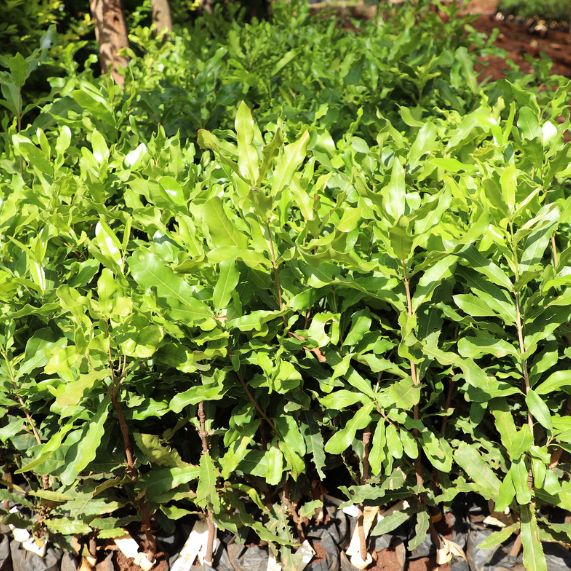
7 Pre-hardening
After the seedlings are successfully germinated after grafting, they are placed in the pre-hardening - this stage lasts 2 months. Growth and reaction to grafting are carefully monitored at this stage.
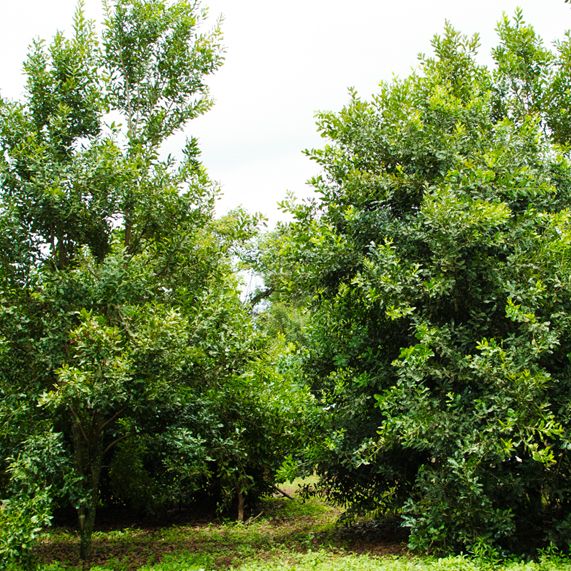
8 Delivery
After the grafted seedlings are fully hardened, they are distributed to the smallholders. It takes 4 to 5 years for an organic macadamia tree to bear fruit. As the tree matures, production increases until it reaches its optimum at around 10 years.
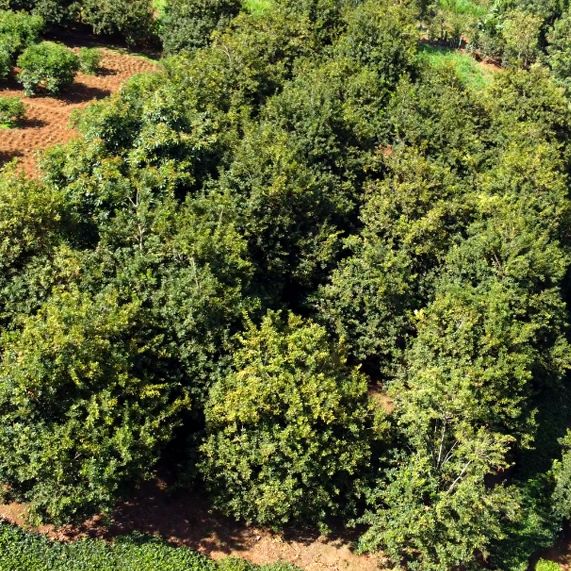
9 Mature trees
The macadamia tree can grow up to 20 meters high and 8 meters wide. It not only provides one of the most nutritious nuts, but also the livelihood for many people in rural Africa.
The macadamia is so healthy!
The macadamia is considered one of the healthiest nuts in the world - for good reason! Because: it is rich in unsaturated fatty acids, contains fiber and stands out due to a wide range of vitamins, minerals as well as trace elements. These include, for example:
Selenium, magnesium, calcium, iron, zinc, potassium, phosphorus and B vitamins.
With their nutrient content, macadamia nuts stimulate digestion, support metabolism and strengthen muscles and nerves. In short, they are an enrichment for every diet and are therefore also recommended by many nutritionists.
Around 75% fat gives the macadamia nut a deliciously buttery aroma and a tender consistency that almost melts in your mouth. Also slightly sweet and mild, its taste cannot be compared to any other nut. This is probably the reason why they are mainly consumed pure - roasted and salted, as well as completely unprocessed, macadamia are a pleasure to enjoy. In addition, the nuts can be used for all kinds of sweet or baked goods. Pressed into oil, they refine cold and hot dishes.
Macadamia oil is also used in cosmetic products - for example, to make skin and hair vital and soft.
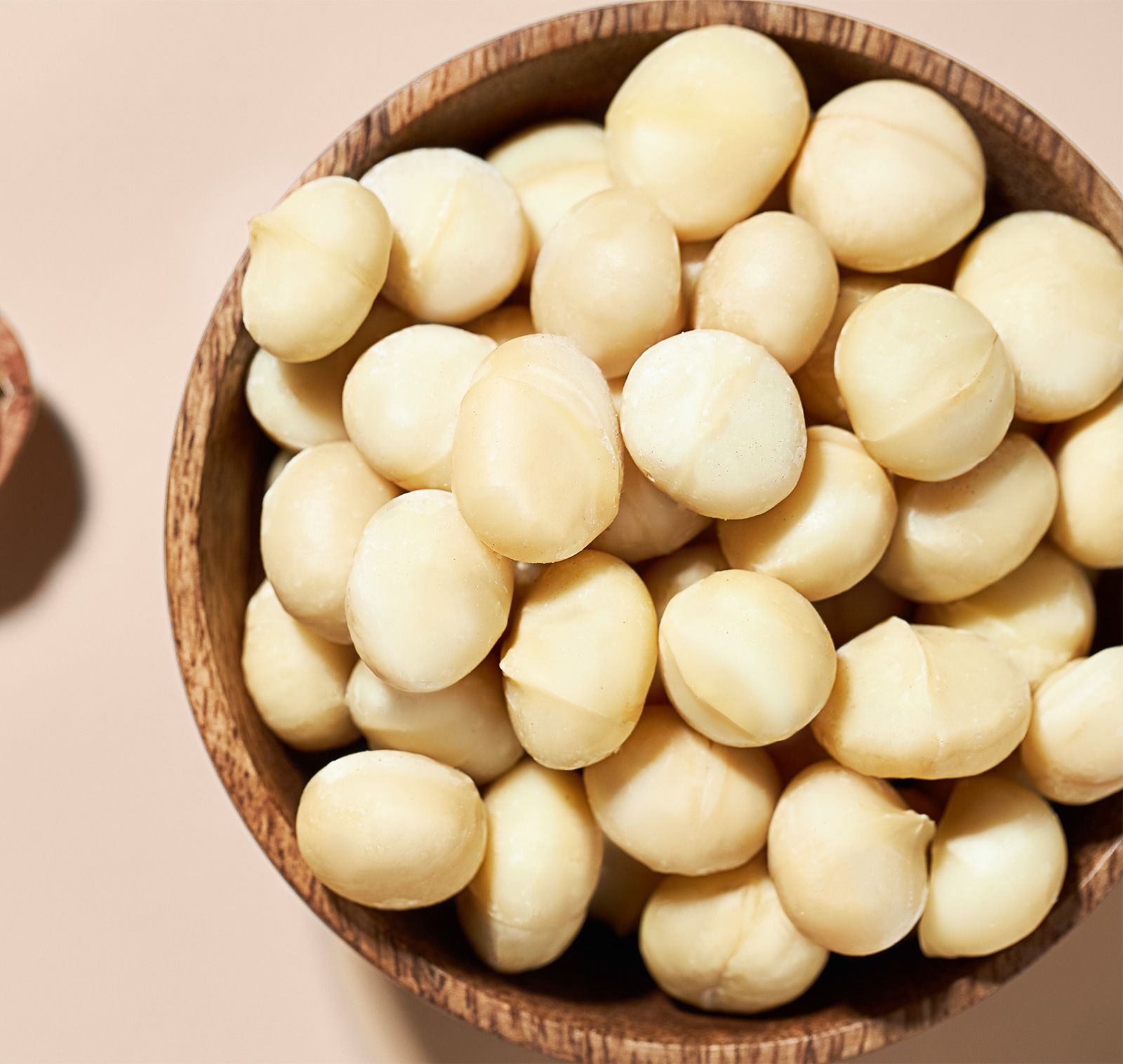
How our macadamia nuts are grown
LIMBUA works exclusively with Kenyan smallholder farmers at the base of Mount Kenya - a particularly fertile region, due to its local climate and volcanic soils that produces high-quality harvests. Careful cultivation also contributes to this. From the beginning this is done in organic farming.
Many farmers have only switched to organic farming through their cooperation with LIMBUA. Knowledge about the dangers of chemical pesticides has not been widely spread before. In addition to organic cultivation, mixed cultivation plays an important role: amongst many other plant species, avocado trees grow between the macadamia tree. This preserves the fertility of the soil - and thus the livelihood of the farmers. In addition, mixed farms produce higher yields and contribute to a healthy ecosystem overall.
Abundant harvests mean a secure source of income for our smallholder farmers. That is why LIMBUA - together with leading scientists - has developed particularly high-yielding macadamia seedlings. These grow in our Kenyan nurseries and are then given to the smallholders. More than 200,000 of these organic seedlings are now thriving on the mixed farms.
In addition, we offer our project partners regular training courses. Here, local agricultural engineers impart valuable knowledge on the topics of cultivation, harvesting and processing. With success: the training increases the quality and quantity of the harvested macadamia nuts year on year.
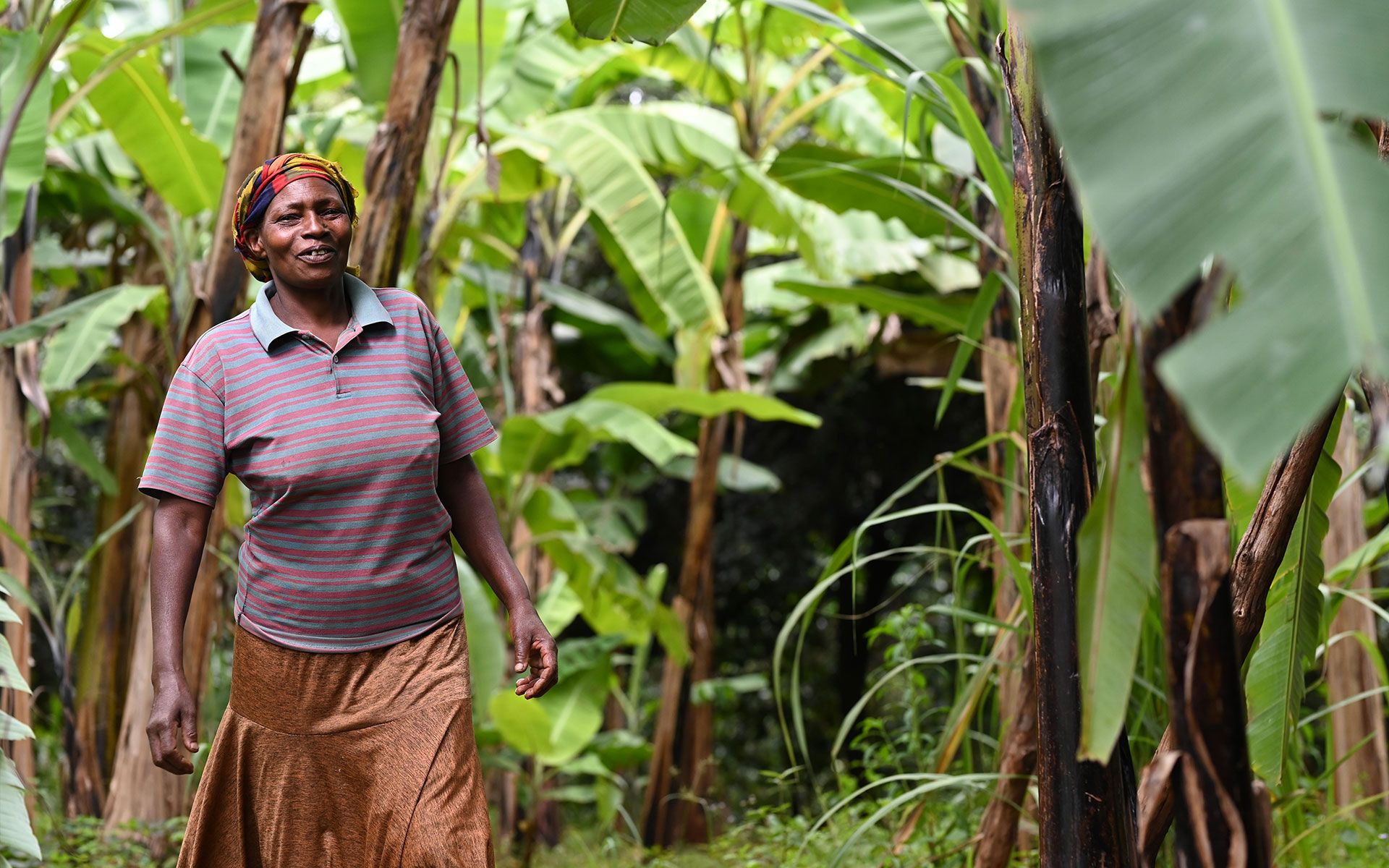
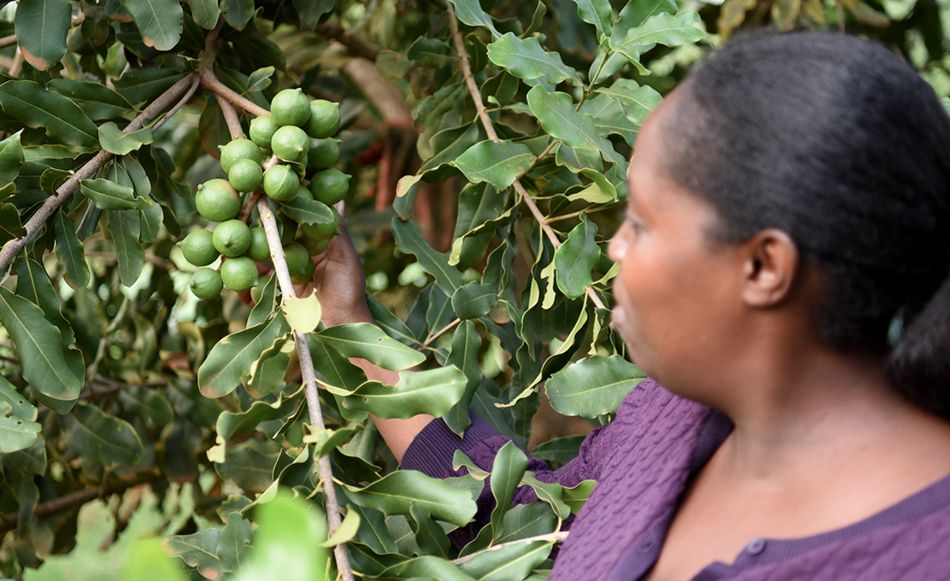
"My greatest motivation is that our smallholders, stakeholders and customers who visit our nursery appreciate the products and services I offer them."
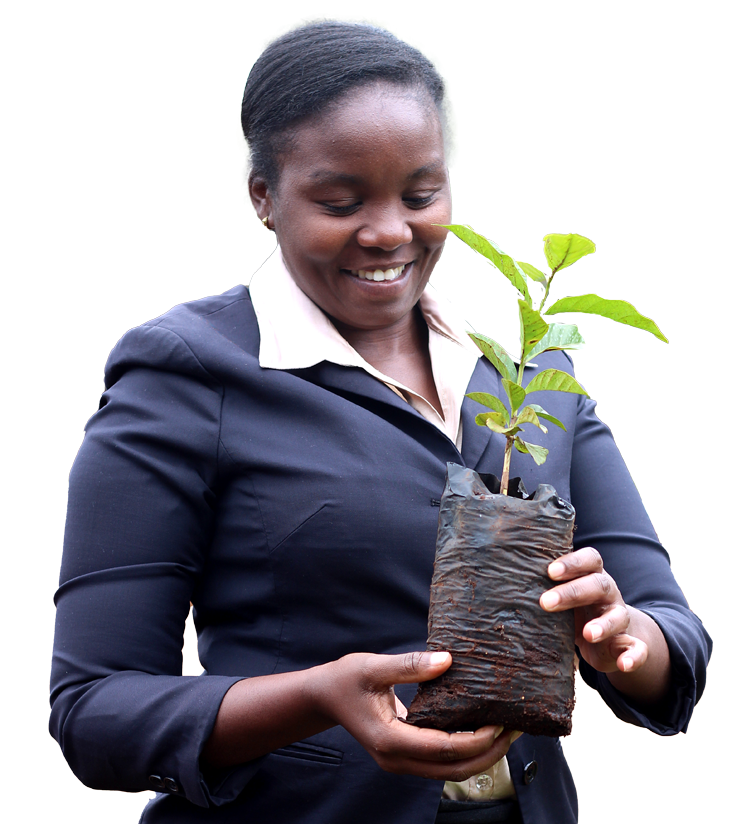
WHAT MAKES LIMBUA DIFFERENT
Since LIMBUA was founded, our goal has been to build a healthy partnership between Europe and Africa. Not only end consumers should benefit - but also Kenyan farmers. This approach is clearly reflected in the cultivation and processing of our organic macadamias - and makes our production processes unique.
Transparency

Our macadamia nuts go through several production steps. Thanks to digital technologies, these remain transparent throughout the entire supply and production chain: It is always possible to trace which batch comes from which farmer - starting at the farm all the way to the logistics center.
This not only increases quality, but also customer satisfaction - after all, 70 percent of consumers today want to know where their products come from and how they were processed. At LIMBUA, it only takes a few clicks to view this information.
MANUFACTURING
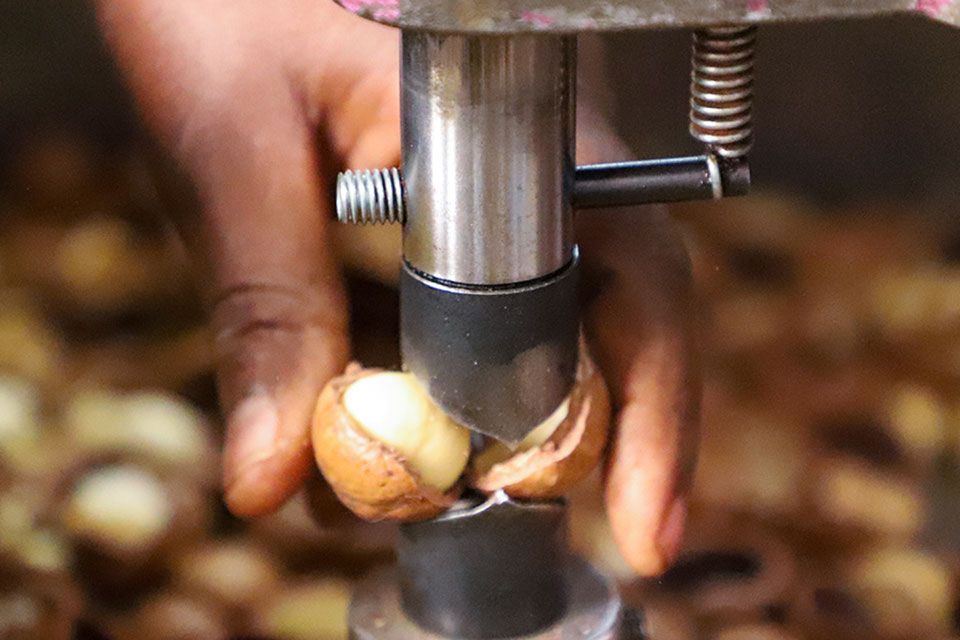
In LIMBUA's four factories, most of the production steps are done by hand. In this way we achieve a very high quality. In addition, manual processes create valuable jobs in the countryside. It also prevents families from being torn apart by people migrating to the cities - where a life in slums often awaits them.
After all, it is usually family members of our smallholders who work in the factories and receive above-average wages, including contributions to health, nursing care and pension insurance.
Quality

From harvesting to packaging, our macadamia nuts undergo constant quality controls to ensure the highest possible product safety. This is also ensured by the short transport routes between the fields and factories.
In this way, we ensure that we process truly fresh nuts, which in turn increases product safety.
In addition, sustainable organic cultivation, gentle production processes and our nurseries, which produce grafted seedlings, all contribute to quality.
CONCLUSION: PERHAPS THE HEALTHIEST NUT FROM SUSTAINABLE & FAIR PRODUCTION

